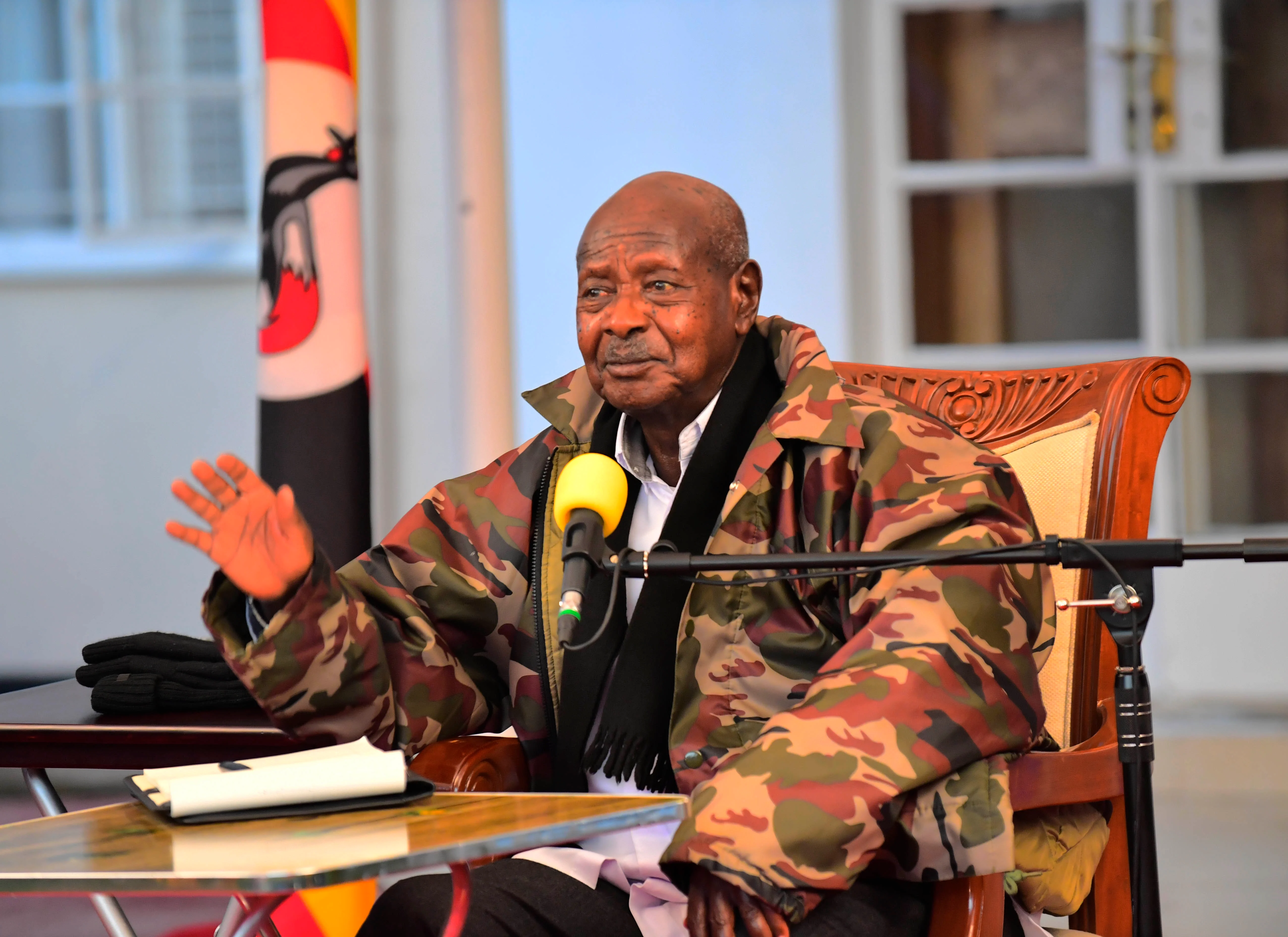Repentance and Responsibility: Museveni's Apology Sparks National Reflection

President Museveni’s public apology and repentance during a church service at Kololo Ceremonial Grounds has ignited a passionate national conversation about leadership, accountability, and the role of religion in governance.
What started as a symbolic act of spiritual humility has since become a mirror through which Ugandans are evaluating the moral compass of the nation’s political and religious leaders.
Dr. Emmanuel Dombo, Director communications and member of the ruling National Resistance Movement (NRM), believes the President should be commended for his public act of contrition.
"I think people should be praising President Museveni for his apology and take a lead from his book," he said, framing the gesture as a rare instance of humility from a leader with decades in power.
Dombo insists that while mistakes may have been made in the course of leadership, Museveni’s act of repentance should be viewed as a step toward moral and national renewal.
But not everyone is convinced. Political analyst and activist Godber Tumushabe offered a sharp counterpoint, asserting that the President’s repentance, though emotionally moving, was misplaced. “Museveni was doing the right thing in the wrong forum,” he said.
“At Kololo, he was repenting to his God. As a Ugandan, I would expect Museveni to sit in State House and apologise to Ugandans and then say what he is doing to right the wrongs.”
Tumushabe’s critique underscores a deeper yearning among Ugandans for a different kind of accountability—one that is public, institutional, and focused on restorative action rather than private spirituality.
This divergence in opinion reflects a broader tension between symbolic leadership and tangible governance. While Dombo defends Museveni’s legacy citing peace and relative stability as key achievements he also acknowledges that structures of accountability must function independently.
“The President might want to deal with the corrupt but he won’t go to court to do the work of the DPP. He set up structures that need to work,” he said.
Yet, for many, including Tumushabe, those structures have either failed or been compromised, especially by those who should embody moral clarity the clergy.
“The clergy leaders in Uganda are even endorsing corruption,” Tumushabe lamented. “Why would a bishop accept a car from the government when the hospital in their area doesn’t have ambulances?”
The entanglement of religious leaders with political patronage has drawn widespread criticism. Tumushabe believes that the clergy, traditionally seen as the moral guardians of society, must reclaim their role in shaping a just and inclusive national dialogue.
“We are supposed to hold the clergy to a higher moral standard than politicians. We know that politicians are inherently liars and dishonest.”
Despite the heated exchange, there is a common thread in the perspectives of both Dombo and Tumushabe: a desire for genuine transformation and national healing. Dombo reiterates the President’s ongoing responsibility as commander-in-chief, emphasising that spiritual repentance does not absolve one of civic duty.
Tumushabe, on the other hand, prays that Museveni’s heart is touched enough to put Uganda before party interests: “My prayer is that God touches Museveni’s heart and he realises that Uganda is more important than that group he calls NRM.”
Many Ugandans, Tumushabe adds, hope for a peaceful and dignified transition: “Many Ugandans want Museveni to end his tenure as a statesman.
As someone we can look back and say he came, fought, and transformed the country for the better.”
In the end, Museveni’s apology has opened the floodgates for a deeper national reckoning—not just with the past, but with the moral architecture of Uganda’s present and future.
Whether it leads to meaningful change or fades as a moment of personal reflection remains to be seen. What is clear, however, is that Ugandans are watching, waiting, and demanding more than symbolic gestures. They want truth, accountability, and justice.



0 Comments